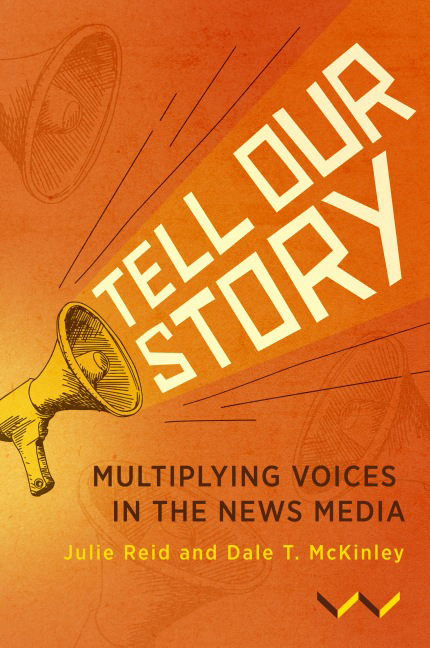Book contents
- Frontmatter
- Contents
- List of Figures
- Acknowledgements
- Abbreviations and Acronyms
- Chapter 1 The Importance of Voice and the Myth of the ‘Voiceless’
- PART 1 FROM THE INSIDE: VOICE(S) FROM THE GROUND
- Chapter 2 Community Perspective, Experience and Voice
- Chapter 3 Glebelands Hostel, Durban
- Chapter 4 Xolobeni, Eastern Cape
- Chapter 5 Thembelihle Community, Johannesburg
- PART 2 FROM THE OUTSIDE: DOMINANT VOICE
- Chapter 6 Dominant Media Telling and Elite Communication
- Chapter 7 The Political Economy of Dominant Power and Storytelling
- PART 3 NEW TRAJECTORIES FOR JOURNALISM AND VOICE(S)
- Chapter 8 Media Diversity and Voice(s)
- Chapter 9 Rethinking Media Freedom, Revamping Media Ethics
- Chapter 10 Planting the Seeds of Change
- Notes
- Bibliography
- Index
Chapter 2 - Community Perspective, Experience and Voice
Published online by Cambridge University Press: 10 September 2020
- Frontmatter
- Contents
- List of Figures
- Acknowledgements
- Abbreviations and Acronyms
- Chapter 1 The Importance of Voice and the Myth of the ‘Voiceless’
- PART 1 FROM THE INSIDE: VOICE(S) FROM THE GROUND
- Chapter 2 Community Perspective, Experience and Voice
- Chapter 3 Glebelands Hostel, Durban
- Chapter 4 Xolobeni, Eastern Cape
- Chapter 5 Thembelihle Community, Johannesburg
- PART 2 FROM THE OUTSIDE: DOMINANT VOICE
- Chapter 6 Dominant Media Telling and Elite Communication
- Chapter 7 The Political Economy of Dominant Power and Storytelling
- PART 3 NEW TRAJECTORIES FOR JOURNALISM AND VOICE(S)
- Chapter 8 Media Diversity and Voice(s)
- Chapter 9 Rethinking Media Freedom, Revamping Media Ethics
- Chapter 10 Planting the Seeds of Change
- Notes
- Bibliography
- Index
Summary
A small number of mostly independent news outlets acknowledge that the real ‘experts’ on any particular news story are the people whose lives are most impacted by the events and situations that the stories describe. The Global Press Journal employs reporters who are based within the community about which they report, recognising the value of journalism that is informed by an understanding of local languages, local customs and contexts, and local histories, so that information is framed in a culturally and contextually appropriate way.
Managing editor of the Global Press Journal, Krista Kapralos (2018) describes what she terms the ‘reliability gap’: a phenomenon in dominant news journalism where predominantly Western media groups and news outlets collect and represent data and evidence based on Western normative standards, regardless of whether the situation being reported on is geographically or culturally Western. Kapralos (2018) adds:
When one culture sets the standard for truth (and implements that standard regardless of location), the narratives that culture culls from other places are likely to be warped … For many research and news agencies, the process of gathering data results in a continual confrontation between Western assumptions and non-Western cultures. While that reality makes the truth less convenient to find, there is a huge potential payoff for those who seek it in context: A meaningful negotiation between equal partners who can respectfully create systems to help determine what is true. At Global Press Journal, we believe it's difficult – if not impossible – to determine the truth without engaging local people. Every story we publish is reported by a local person. Every story includes sources who are as close as possible to the situations described. And reporters are supported by a robust editorial team dedicated to accuracy.
The Guardian's editor-in-chief, Katharine Viner, insists that media outlets ought to be much more representative of the societies they aim to represent. A survey conducted in the United Kingdom revealed that a privately educated elite still dominates that country's journalism profession, and that journalism has revealed a trend towards social exclusivity more than any other profession (Weale 2016; Jones 2016). According to Viner (2017), ‘This matters because people from exclusive, homogenous backgrounds are unlikely to know anyone adversely affected by the crises of our era, or to spend time in the places where they are happening.
- Type
- Chapter
- Information
- Tell Our StoryMultiplying Voices in the News Media, pp. 27 - 38Publisher: Wits University PressPrint publication year: 2020



